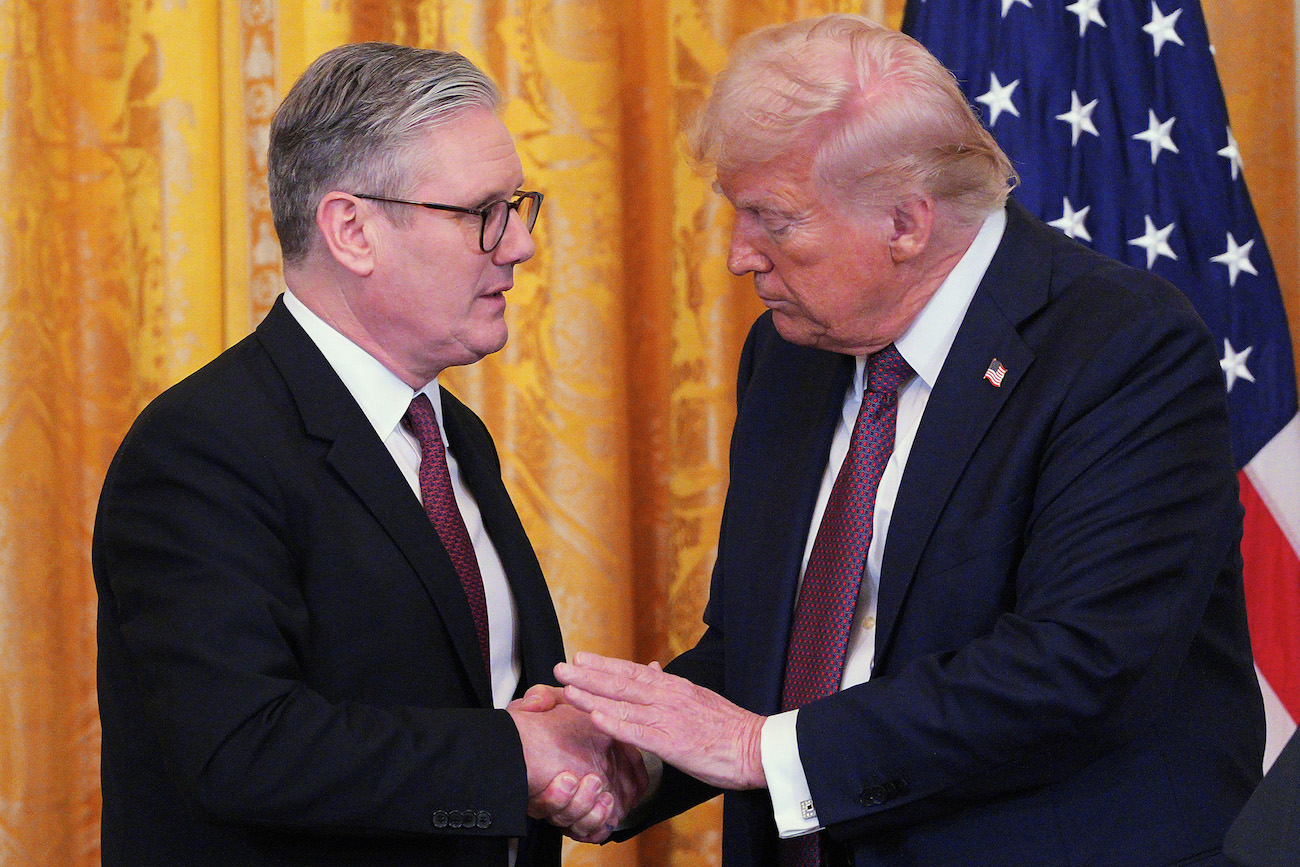Has there ever been a day when Brexit seemed such a good idea? The story of Brexit began to change on ‘Liberation Day’ on 2 April when Donald Trump announced a 10 per cent tariff on imports from the UK and a 20 per cent tariff on those from the EU. No longer was it possible for anyone to argue there were no tangible benefits from leaving the EU: here was one of them staring us in the face. Following that, all proposed tariffs were suspended for 90 days to allow negotiations. Since then, though, the story has changed dramatically – and in Britain’s favour. Thanks to the trade deal announced by Trump and Keir Starmer a fortnight ago, some tariffs on UK imports will be dropped altogether. Now comes the bombshell that Trump is proposing that EU imports be subject to a whacking 50 per cent tariff from early June.
The President’s threats may never materialise, of course. We know his method by now. The 50 per cent tariff is a negotiating gambit. He hopes that it will jolt the EU into ceding more ground than it evidently has done already. In a post on Truth Social, he describes the EU ‘being very difficult to deal with’. It is very likely that there will be some movement before the deadline. In the meantime, however, Britain looks to be in a dream position. It sits metaphorically mid-Atlantic, with trade deals with both the EU and the US. There is now a strong incentive for companies which export to both the US and the EU to set up shop in Britain – assuming they are not dissuaded by the EU regulations which will now apply here, thanks to Starmer’s ‘reset’ in relations with the EU.
Question is, however, how does the EU now react to Britain’s advantage? Just as we know how Trump operates, we know how the EU works, too. It is hard to imagine that it will sit by and tolerate Britain enjoying a privileged position of being able to trade relatively freely with both the US and itself. Even now, its negotiators will be dreaming up ways to compromise Britain’s advantage. They will be working out ways to punish businesses which seek to move operations to Britain. They will be exploring ways in which Britain’s reset can be used against us. Starmer’s concession to allow the European Court of Justice the role of arbitrator in trade disputes between the EU and the UK is no doubt going to help it.
It is hard to award Keir Starmer too much credit for putting Britain in its new-found privileged position – it seems a little accidental how it has happened, although the Prime Minister perhaps does deserve praise for not falling for Trump’s verbal bait. Other potential Labour leaders would no doubt have skewered any chance of doing a trade deal with the US. Nor is it certain that the government will take full advantage of the situation; simultaneously it seems determined to drive investment away through excessive taxes and employment law. Moreover, there is still a chance – though a diminishing one – that the EU will succeed in negotiating an 11th hour deal which stops the punitive 50 per cent tariffs ever coming into effect. But for the moment there will be many UK businesses who, possibly for the first time, are grateful to be outside the EU.









Comments